Q: What is PTM?
A: PTM = Post Translational Modification
Post Translational Modification describes an array of Modifications that occurs on a protein after it has been Translated and synthesized.
Post Translational Modifications (PTMs) enhances biological complexity beyond what is described by the Genome, the Transcriptome, and the Proteome. The scale and scope of the myriads of PTMs are still poorly understood and not fully characterized. However, PTMs has been found to distinguish healthy cells/tissue from diseased cells/tissue and to be important in various biological dysfunctions (1).
Though PTMs are important to disease biology, therapeutics development targeting PTMs are just in its infancy. Crizanlizumab, an Novartis antibody drug against P-Selectin for the treatment of Sickle Cell Anemia, is one of a few antibody therapies derived from Glycobiology research. The focus on PTMs to date has been mainly on the design of the antibody drug itself (2).
(1) Xu, H., et al., PTMD: A Database of Human Disease-associated Post-translational Modifications, Genomics Proteomics Bioinformatics. 2018 Aug;16(4):244-251. doi: 10.1016/j.gpb.2018.06.004
(2) Zhou, J. Y., et al., The Glycoscience of Immunity. Trends in Immunology, 2018; 39(7), 523–535Zhou, J. Y., Oswald, D. M., Oliva, K. D., Kreisman, L. S. C., & Cobb, B. A. (2018). doi:10.1016/j.it.2018.04.004
